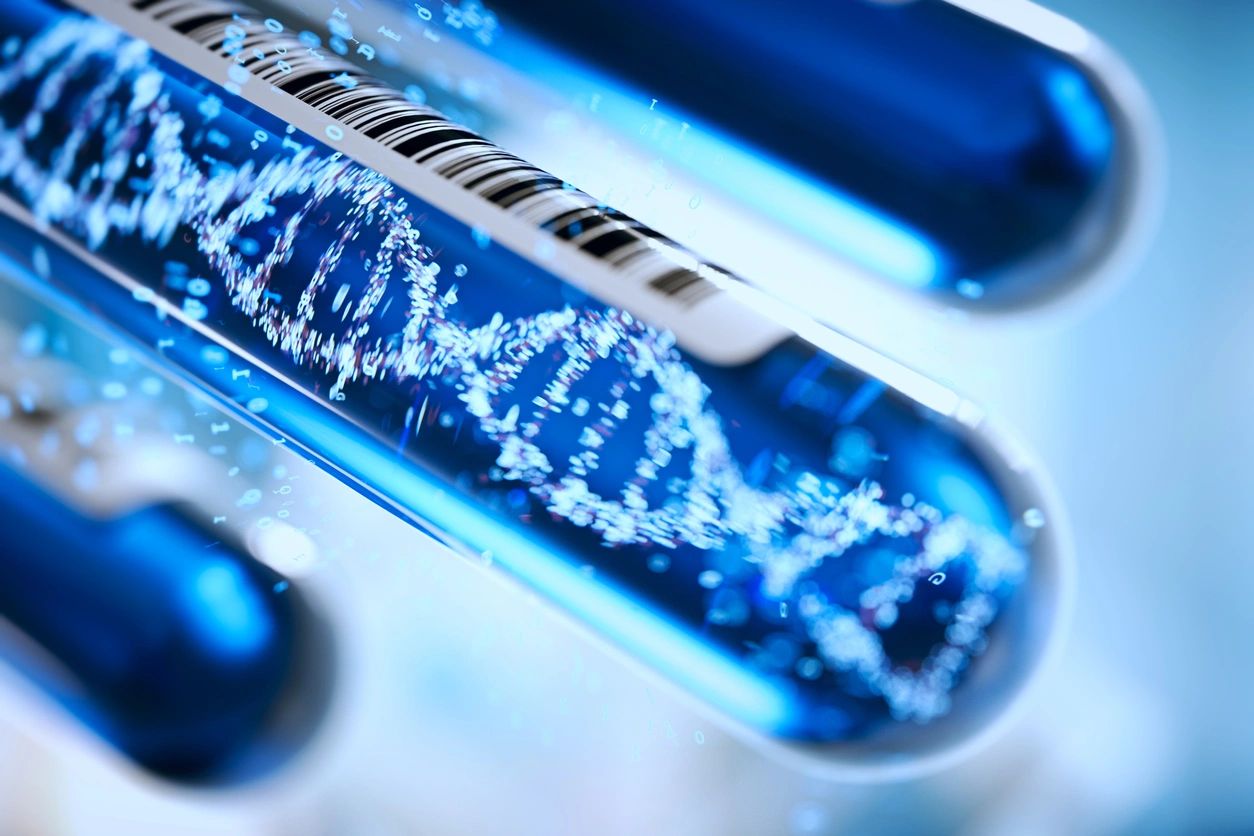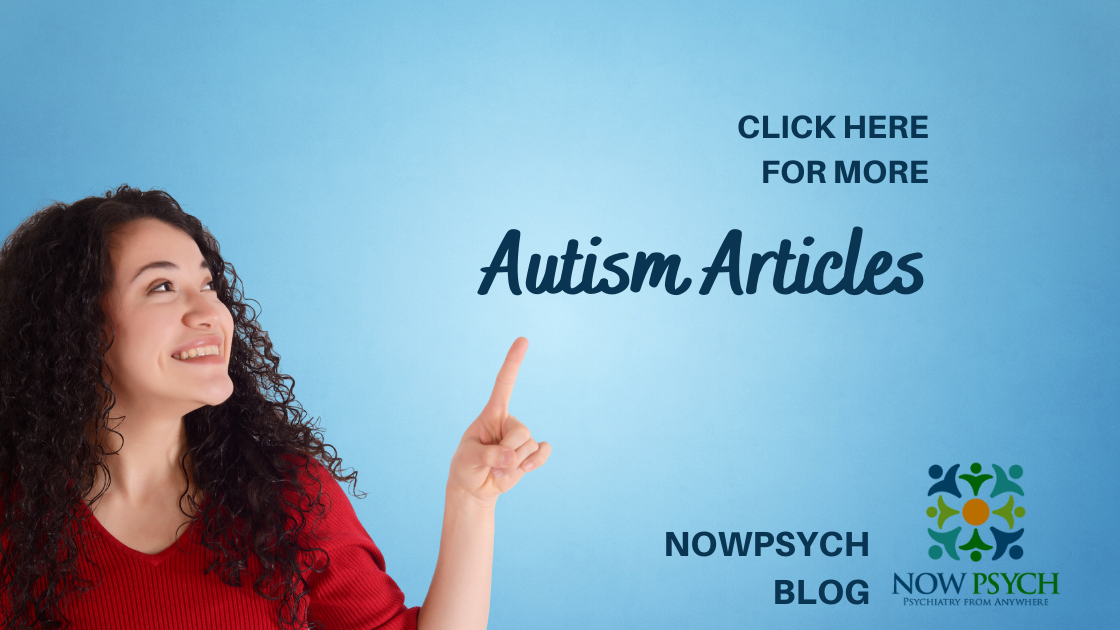The Genetics of Autism
Knowing more about autism spectrum disorder (ASD) will help us answer: is autism genetic? Autism is an early childhood neurodevelopmental disorder (meaning that it affects the nervous system and the development of a child) that is defined by abnormal social interactions, difficulty adjusting to change, sometimes unusual communication skills, and having a hypersensitive, and having restricted, repetitive, restricted behaviors (RRBs). Decades ago, theories were that cold parenting attitudes were to blame for the disorder, and many children were institutionalized. Thankfully we understand so much more about autism now, and can help children and families with autism live very fulfilling and productive lives.
Twin and family-based studies demonstrate that autism has a high genetic tendency, with up to 60 – 90% of cases being traced to an identifiable hereditary (inherited) source. The combination of and variation in genes is thought to be the genetic cause of about 50% of the total risk for autism spectrum disorder.
ASD includes a variety of conditions that fit into two categories. The first one is genetic, and the second is from unknown causes. Those due to unknown causes have been called various things including autism, autistic disorder, Asperger syndrome, and pervasive developmental disorder. People with what used to be called Asperger syndrome are high-functioning individuals with autism and may not have difficulty communicating or other more severe symptoms.
Early behavioral and developmental signs and symptoms of autism are abnormal reactions to the environment, failure to look in the direction that someone is pointing, regressing developmentally, absence of smiling, odd or no reaction to pain, language delays, strange speech patterns, and repetitive behaviors. They also often have other behavioral and sleep issues.
Causes of Autism
Although the whole picture of the cause of autism is still unknown, hypotheses include genetic abnormalities, obstetric complications, exposure to toxic agents, exposure to drugs, and prenatal, perinatal, and postnatal infections. Genetics plays a role in up to 74% to 93% of cases of autism. Siblings of children with autism are at risk for developing autism traits or having autism diagnosed. So, is all Autism genetic? No, the causes can also be related to more than one factor, or sometimes remains unknown.
Is Autism Genetic?
Autism genetic studies have demonstrated that autism spectrum disorder is probably associated with 400 to 1000 genes. Genetics plays a role in 74% to 93% of autism spectrum disorder cases primarily because autism is associated with the maternal age of 40 years and older, paternal age over 50, and intervals between pregnancy less than 24 months.
The rate of autism spectrum disorder in children born into families that already have an autistic child is 18.7%, and the risk is double that in children born to families with two or more autistic children. Girls born to a family that has an autistic child are 2.8 times more likely to have the disorder. Multiple family studies have suggested genetic components in many cases of ASD. A neurogenetic evaluation of children with ASD demonstrates a genetic disorder in two-fifths of the children. Fragile X syndrome is a genetic disorder and a subtype of ASD. Another genetic subtype of ASD is tuberous sclerosis.
Nutritional and Infectious Disease Factors in Autism
Genetic evidence for the role of low folate in autistic children was first reported in a study of 168 autistic children where there was double the rate of THFR polymorphisms (genes that code for the breakdown of folate) in those with autism, compared with those in the control group. Infections such as maternal rubella have also been associated with significantly higher rates of autism.
Vaccines are not linked to autism, according to current and comprehensive research studying this question. According to research performed on more than 1000 children, exposure to vaccines between the ages of 3 months and two years was not associated with an increased risk of developing an autism.
Dr. Sean Paul, MD is a child psychiatrist specializing in the diagnosis and treatment of autism spectrum disorder, along with other mental health concerns.
References:
- [Guideline] Landa R. Bringing the early signs of autism spectrum disorder into focus. Youtube. Available at https://www.youtube.com/watch?v=YtvP5A5OHpU. 2013; Accessed: January 5, 2020.
- Brasic JR, Holland JA. Reliable classification of case-control studies of autistic disorder and obstetric complications. Journal of Developmental and Physical Disabilities. 2006;18:355-381:
- Brasic JR, Holland JA. A qualitative and quantitative review of obstetric complications and autistic disorder. Journal of Developmental and Physical Disabilities. 2007;19:337-364:
- Brasic JR, Holland JA, Alexander M. The increased likelihood of obstetric complications in autistic disorder [abstract]. Southern Medical Journal. 2003;96 (10 supplement):S34:
- Fatemi SH, Earle J, Kanodia R, Kist D, Emamian ES, Patterson PH, et al. Prenatal viral infection leads to pyramidal cell atrophy and macrocephaly in adulthood: implications for genesis of autism and schizophrenia. Cell Mol Neurobiol. 2002 Feb. 22(1):25-33
- Schmidt, Rebecca J.a,b; Hansen, Robin L.b,c; Hartiala, Jaanad; Allayee, Hoomand; Schmidt, Linda C.e; Tancredi, Daniel J.c,f; Tassone, Florab,e; Hertz-Picciotto, Irvaa,bPrenatal Vitamins, One-carbon Metabolism Gene Variants, and Risk for Autism, Epidemiology: July 2011 – Volume 22 – Issue 4 – p 476-485 doi: 10.1097/EDE.0b013e31821d0e30








